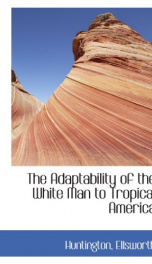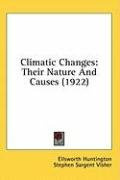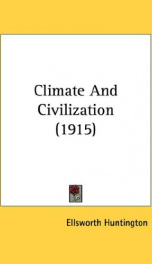Huntington Ellsworth

Ellsworth Huntington (September 16, 1876 – October 17, 1947) was a professor of geography at Yale University during the early 20th century, known for his studies on climatic determinism, economic growth and economic geography. He served as Presidents of the Ecological Society of America in 1917, the Association of American Geographers in 1923 and the President of the Board of Directors of the American Eugenics Society from 1934 to 1938. He taught at Euphrates College, Turkey (1897–1901); accompanied the Pumpelly (1903) and Barrett (1905–1906) expeditions to central Asia; and wrote of his Asian experiences in Explorations in Turkestan (1905) and The Pulse of Asia (1907). He taught geography at Yale (1907–1915) and from 1917 was a research associate there, devoting his time chiefly to climatic and anthropogeographic studies. In 1909, Huntington led The Yale Expedition to Palestine. It was his mission to determine "step by step the process by which geologic structure, topographic form, and the present and past nature of the climate have shaped man's progress, moulded his history; and thus played an incalculable part in the development of a system of thought which could scarcely have arisen under any other physical circumstances.[1] He was on the original standing committee of the Foundation for the Study of Cycles from 1941.
do you like this author?
What readers are saying
What do you think? Write your own comment on this book!
write a commentWhat readers are saying
What do you think? Write your own comment on this author!
write a commentBook list

the adaptability of the white man to tropical america
Series:
Unknown
Year:
Unknown
Raiting:
4/5
Show more
add to favoritesadd In favorites
Book list

the adaptability of the white man to tropical america
Series:
Unknown
Year:
Unknown
Raiting:
4/5
Show more
add to favoritesadd In favorites

climatic changes their nature and causes
Series:
Unknown
Year:
Unknown
Raiting:
4.5/5
Contents: 1) The Uniformity of Climate. 2) The Variability of Climate. 3) Hypotheses of Climatic Change. 4) The Solar Cyclonic Hypothesis. 5) The Climate of History. 6) the Climatic Stress of the Fourteenth Century. 7) Glaciation According to the Solar Cyclonic Hypothesis. 8) Some Problems of Glacial Periods. 9) The Origin of Loess. 10) Causes of Mild Geological Climates. 11) Terrestrial Causes of Climatic Changes. 12) Post-Glacial Crustal Movements and Climatic Changes. 13) The Changing Composition of Oceans and Atmosphere. 14) The Effect of Other Bodies on the Sun. 15) The Sun's Journey through Space. 16) The Earth's Crust and the Sun.
Show more
add to favoritesadd In favorites

The Red Man's Continent: a chronicle of aboriginal America
Series:
Unknown
Year:
Unknown
Raiting:
3.5/5
Show more
add to favoritesadd In favorites
What readers are saying
What do you think? Write your own comment on this author!
write a commentif you like Huntington Ellsworth try:
readers also enjoyed
What readers are saying
What do you think? Write your own comment on this author!
write a commentGenre
if you like Huntington Ellsworth try:
readers also enjoyed
Do you want to exchange books? It’s EASY!
Get registered and find other users who want to give their favourite books to good hands!


